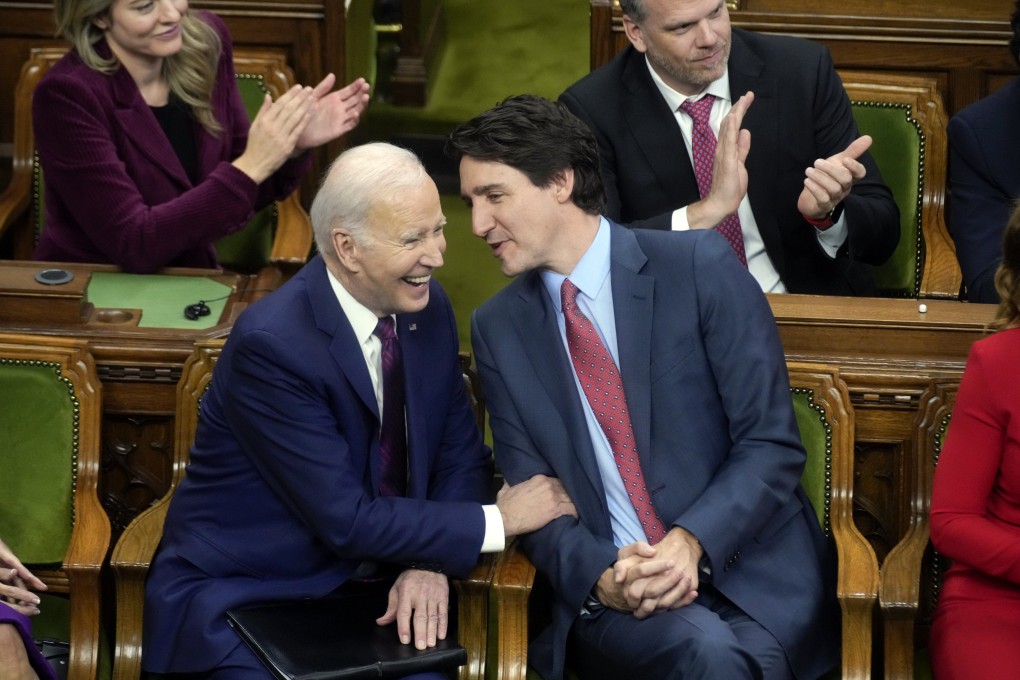Biden-Trudeau summit: Canada and US forge stronger ties against ‘disruptive’ China
- North American leaders push for stronger joint supply chains and less dependence on other countries for critical minerals and semiconductors
- Canadians Michael Spavor and Michael Kovrig, who China had detained for more than 1,000 days until 2021, attend the speeches

“Canada and the United States acknowledge the serious long-term challenge to the international order posed by the People’s Republic of China, including disruptive actions such as economic coercion, non-market policies and practices, and human rights abuses,” the two leaders said in a statement after their talks.
They described Washington and Ottawa as “the closest of friends and allies” and vowed to work together to create a resilient “North American critical minerals supply chain”, saying it was vital to two countries’ economic and national security.
Addressing the Canadian parliament the same day, Trudeau said economics and security were intertwined.
“With growing competition, including from an increasingly assertive China, there’s no doubt why it matters that we turn to each other now to build up a North American market on everything from semiconductors to solar panel batteries,” he said.
